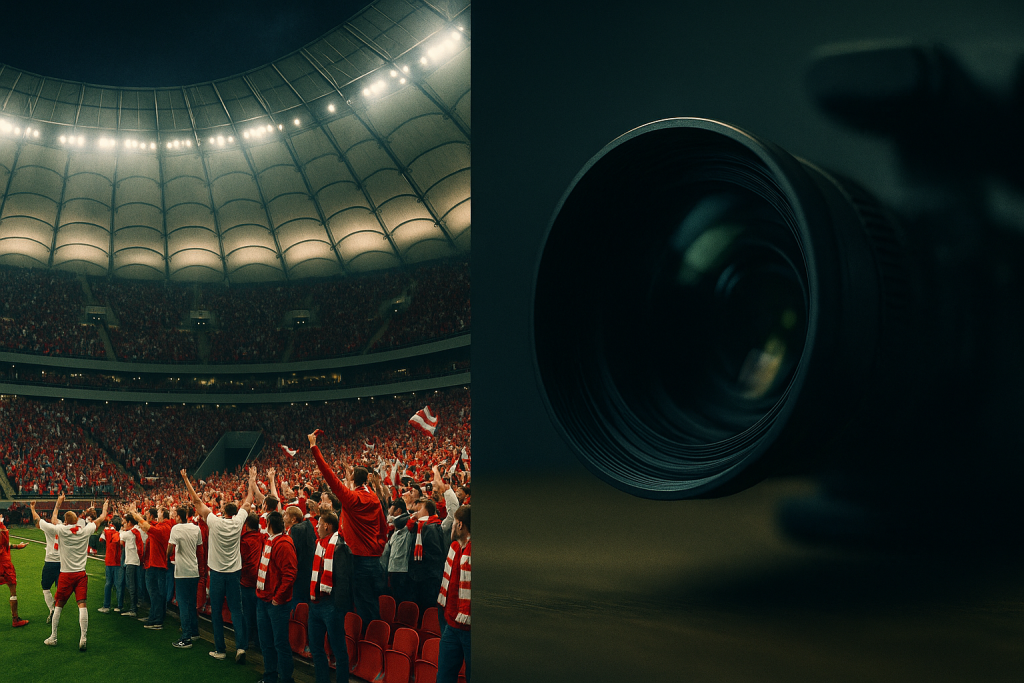In the run-up to Euro 2012, the BBC’s Panorama broadcast “Stadiums of Hate”, a programme that cast Poland and Ukraine—the tournament hosts—in the darkest possible light. With accusations of rampant racism and threats to supporter safety, the broadcast struck a nerve. For Patryk Malinski, it was a piece of journalism that strayed into sensationalism and generalisation, leaving a skewed picture of Polish football culture.
A flawed start
The opening moments of the programme undermined its own authority: a map of Europe mislabelled Austria as Poland’s neighbour and still included Yugoslavia, dissolved two decades earlier. If basic facts could be so casually misrepresented, Malinski argued, what confidence should viewers have in the larger claims?
Selective examples
The report began in Łódź, a city not hosting any Euro 2012 matches. Panorama translated a derby chant between Widzew and ŁKS fans as “Who’s not jumping is a Jew,” when in reality the chant was “Who’s not jumping is from Widzew.” Later, in Rzeszów—a town whose clubs play in the third tier—the programme highlighted a two-year-old racist banner incident. While deplorable, the fans responsible were prosecuted, though the delay in sentencing was blamed on Poland’s sluggish judiciary rather than hidden tolerance. Malinski asked whether Panorama would suggest the same about Britain, given the John Terry racism case had taken months to reach trial.
Context ignored
Malinski acknowledged that racism and anti-Semitism exist in Polish football, but insisted Panorama exaggerated their prevalence. Fans of certain clubs use “Jew” as a derogatory term, yet others, like Cracovia’s, embrace the identity proudly. Foreign players, including black players in Poland’s leagues, have spoken positively about their experiences, but such testimony was absent from the broadcast. Instead, Panorama chose the one player who confirmed its premise. Equally troubling was the way Poland and Ukraine were lumped together, leaving the impression of a single, equally racist society despite clear differences in what was shown from each country.
Double standards?
For Malinski, Panorama’s narrative was unbalanced. While Polish football has its problems, so too does English society. If Panorama had applied the same lens to London, with footage of the 2011 riots, EDL marches, and urban unrest, would it have warned families not to attend the Olympic Games? The omission suggested double standards and left many Poles feeling unfairly stigmatised.
A country misrepresented
Panorama’s “Stadiums of Hate” may have stirred international alarm, but to Malinski, it failed in its journalistic duty. By mistranslating chants, highlighting marginal cases, and overlooking positive voices, it painted a distorted picture. Racism exists in Poland, but to claim it defines the football culture is to miss the truth—and to risk doing harm in the process.

